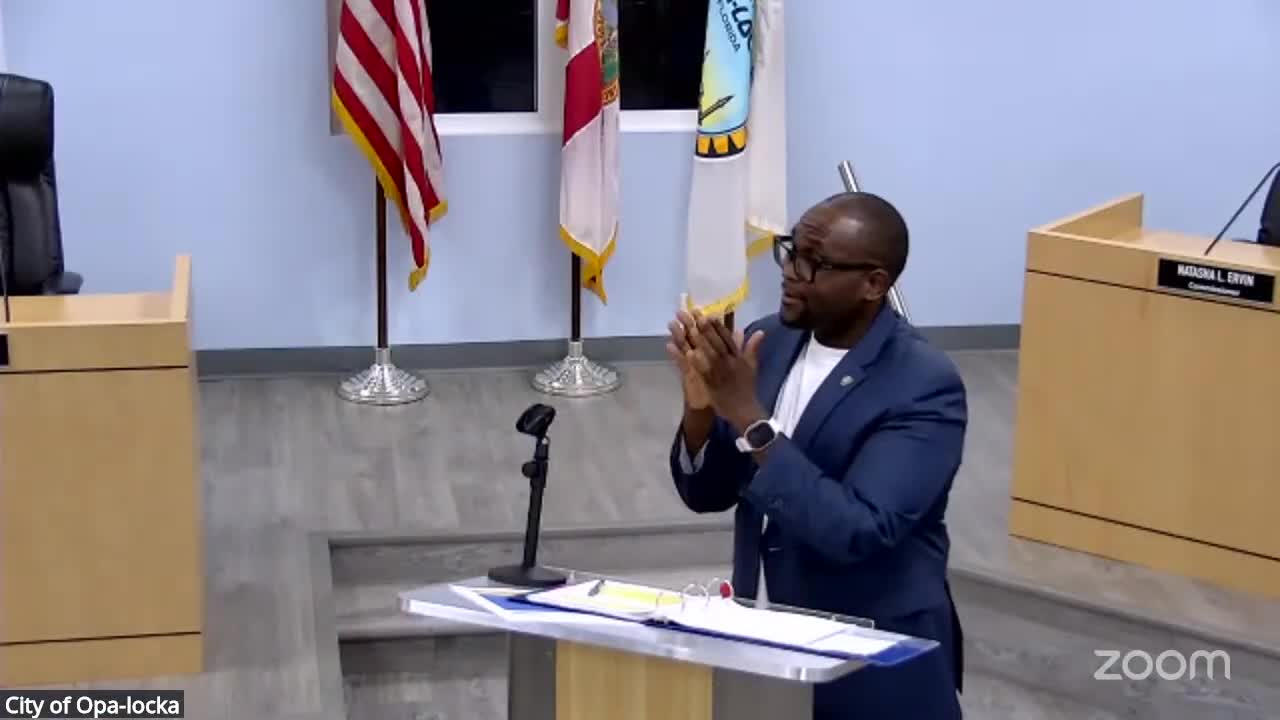Activists Call for Action on Racial Economic Disparities in Miami Waterfront Development
September 18, 2025 | City of Opa-locka, Miami-Dade County, Florida
This article was created by AI summarizing key points discussed. AI makes mistakes, so for full details and context, please refer to the video of the full meeting. Please report any errors so we can fix them. Report an error »

During a recent Legislative Town Hall and Listening Tour in Opa-locka, community leaders and residents voiced urgent concerns about racial and economic disparities affecting the local population. The meeting, held on September 17, 2025, highlighted the need for a comprehensive assessment of inequalities, particularly between Black and white communities.
One of the key discussions centered on the lack of Black-owned businesses in prominent areas, such as the waterfront, where significant federal investments have been made over the past decades. A speaker pointed out that despite $93 million spent on developing Bayfront Park, there has not been a single Black-owned operator in the area since its completion in 1987. This stark absence underscores the systemic barriers that have persisted for over 40 years, leaving many community members feeling marginalized and overlooked.
Participants called for the creation of a "laundry list" of these disparities to formally document the issues and activate a "suspicious activity report" (SAR). This report would prompt regulatory agencies to investigate the allocation of funds and resources, potentially influencing bond ratings and funding opportunities for the counties involved. The speaker emphasized that without accountability, the disparities will continue to be ignored, and the community will remain "invisible" to decision-makers.
The meeting also touched on previous studies conducted by the Black Caucus, which revealed significant discrepancies in funding and policy creation between predominantly white districts and those with larger Black populations. Community leaders stressed the importance of having representatives who genuinely care about the needs of Black communities, as well as the necessity for constituents to engage actively in the political process to drive change.
As the meeting concluded, there was a collective call to action for residents to unite and advocate for their rights and needs, particularly as the next election cycle approaches. The discussions underscored a critical moment for Opa-locka, where the community seeks to address long-standing inequities and ensure that all voices are heard in the pursuit of a more equitable future.
One of the key discussions centered on the lack of Black-owned businesses in prominent areas, such as the waterfront, where significant federal investments have been made over the past decades. A speaker pointed out that despite $93 million spent on developing Bayfront Park, there has not been a single Black-owned operator in the area since its completion in 1987. This stark absence underscores the systemic barriers that have persisted for over 40 years, leaving many community members feeling marginalized and overlooked.
Participants called for the creation of a "laundry list" of these disparities to formally document the issues and activate a "suspicious activity report" (SAR). This report would prompt regulatory agencies to investigate the allocation of funds and resources, potentially influencing bond ratings and funding opportunities for the counties involved. The speaker emphasized that without accountability, the disparities will continue to be ignored, and the community will remain "invisible" to decision-makers.
The meeting also touched on previous studies conducted by the Black Caucus, which revealed significant discrepancies in funding and policy creation between predominantly white districts and those with larger Black populations. Community leaders stressed the importance of having representatives who genuinely care about the needs of Black communities, as well as the necessity for constituents to engage actively in the political process to drive change.
As the meeting concluded, there was a collective call to action for residents to unite and advocate for their rights and needs, particularly as the next election cycle approaches. The discussions underscored a critical moment for Opa-locka, where the community seeks to address long-standing inequities and ensure that all voices are heard in the pursuit of a more equitable future.
View full meeting
This article is based on a recent meeting—watch the full video and explore the complete transcript for deeper insights into the discussion.
View full meeting